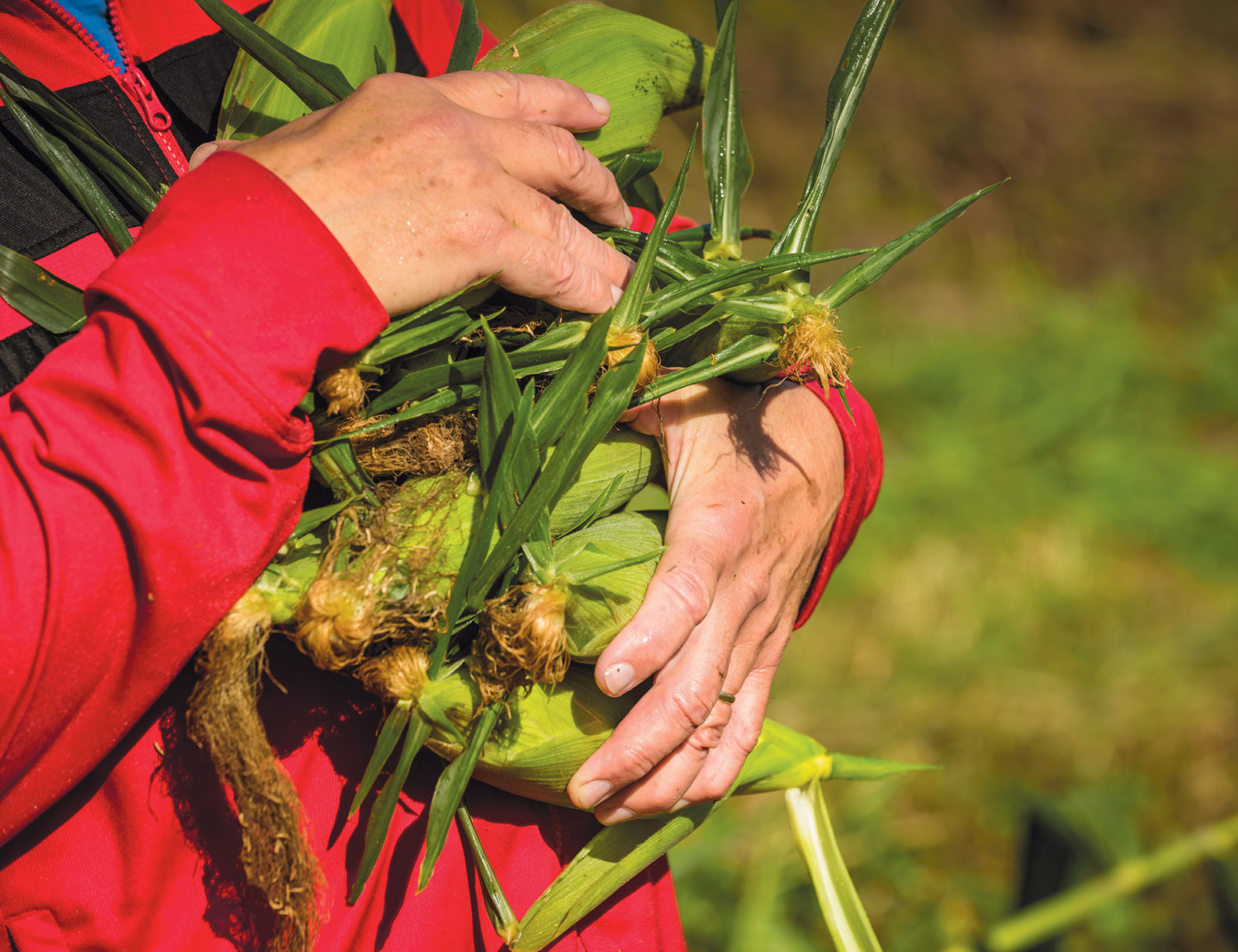Waste Not, Want Not
LocalShare rescues leftover produce for those in need
Think back to summer in your garden.
When that first tomato ripened on the vine, you gave it a gentle tug and then gobbled it up.
When the next few tomatoes turned red, you picked them and added them as colorful accents in a nice green salad. Soon, there were enough tomatoes to take center stage in a Caprese salad. There were plenty for BLTs. And gazpacho. And several jars of marinara sauce.
And then there were way too many tomatoes. They piled up on your kitchen counter and your dining room table. You gave them to neighbors, co-workers, dog-walkers who happened to pass by your house. Hey, you, want some tomatoes? To your dismay, some tomatoes got squishy before you could eat them. Some even rotted on the vine. They never stood a chance.
Anyone who gardens can recognize the mixed blessing of an abundant harvest. Multiply those tomatoes exponentially and you can imagine how it is for farmers.
If only there were a way to get all those surplus tomatoes, zucchini, corn, apples, peaches and string beans into the kitchens of people who needed them. But that would require a lot of time, effort and cooperation from many different people. Good luck with that.
Turns out, there are people in New Jersey who already have stepped up to the plate. LocalShare, a project of the Blairstownbased Foodshed Alliance, has brought together farmers, food pantries, soup kitchens and volunteers in an effort to feed the hungry, support local agriculture and minimize food waste. It’s a tall order, but amidst the pastoral beauty of Northwest Jersey, LocalShare is rescuing surplus produce from the fate suffered by your extra tomatoes.
“We believe all people should have access to locally grown, natural food,” says Christine Parauda, coordinator of LocalShare, which began its work in 2012.
It all starts with gleaning. If you’ve seen “The Gleaners,” the 1857 French painting by Jean-Francois Millet, you might think of gleaning as the work of the poor and oppressed, gathering meager scraps of grain from an indifferent landscape. That’s not how it goes for the volunteers who glean for LocalShare.
Throughout the lush days of summer and autumn, you’ll find church groups, Scout troops, corporate team-building armies and young families mingling with a core group of about 10 dedicated LocalShare volunteers. Under the direction of hospitable farmers in Warren and Sussex counties, these gleaners go through fields and orchards, harvesting what the farmers can’t use. The food is transported that same day to a local food pantry or soup kitchen, for maximum freshness and nutritional value.
“I love it because you’re outside, and everyone is very enthusiastic,” says Michele Smith, a regular volunteer for the past three years who helps organize the gleanings. “The people who do this, they tend to appreciate that this stuff is not going to waste, that it’s not going to be plowed under.”
New Jersey’s farmers do not plow crops under just for the heck of it. Parauda explains that surplus happens because farmers need to plan for the worst, in terms of weather, pests and disease, so they plant more than they think they’ll need. Often it’s not economically feasible for a farmer to hire labor to pick surplus produce. Gleaners also gather vegetables that have fallen off the vine or that have “ugly” features that don’t affect quality but might cause rejection from shoppers. All that unwanted or unavailable produce adds up.
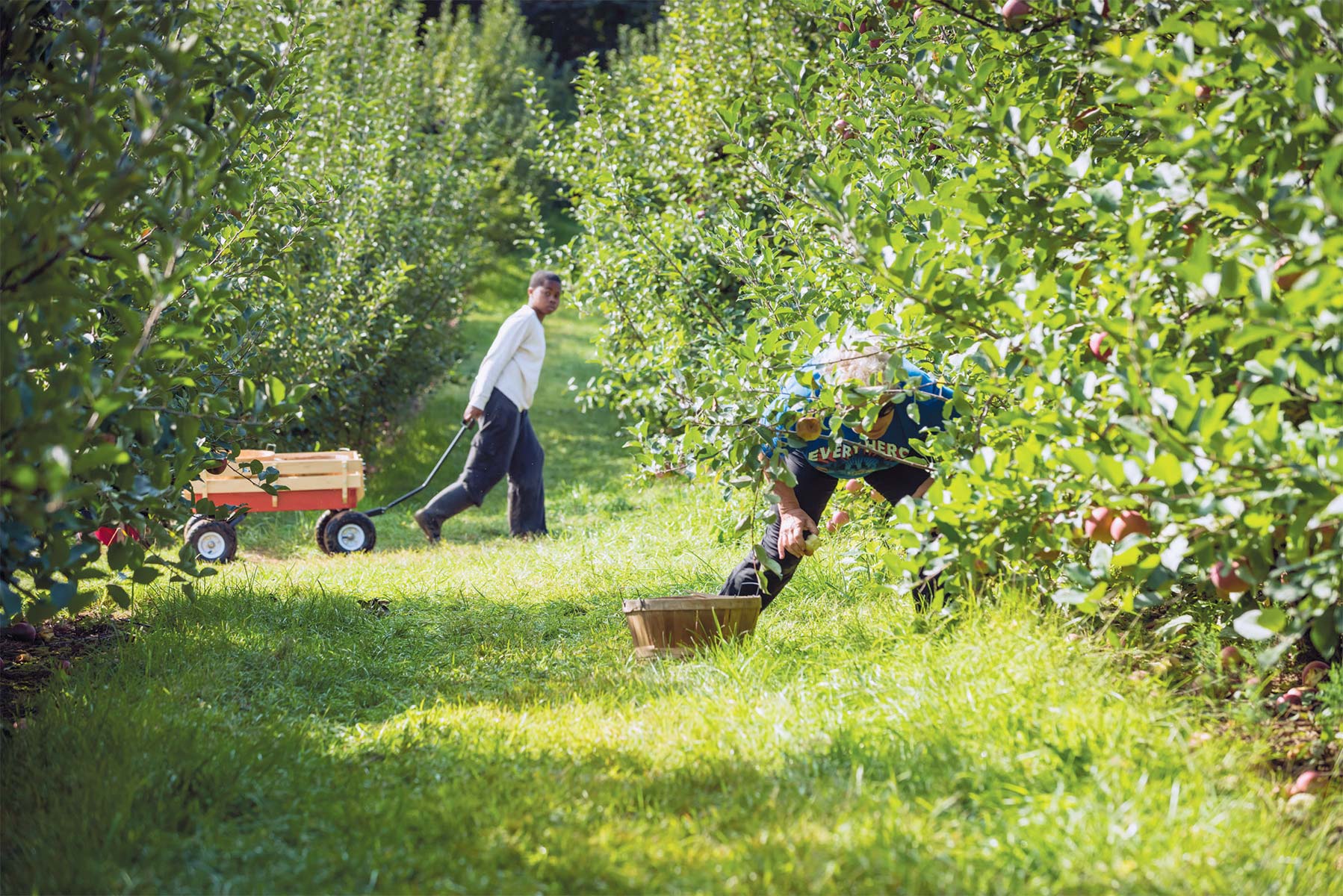
Volunteers glean produce at Long Meadow Farm, owned by Brad Burke in Hope NJ. In one day, the crew collected 3,634 pounds of food from three farms.
“We wanted to build trust and show that
the food would be handled properly
and the farms would be treated with respect.”
—Christine Parauda, coordinator, LocalShare
“We pick four days a week toward the end of the season, and our calendar will go until after Thanksgiving,” Parauda says. “Sometimes, we’ll call for a ‘flash mob’ before a frost, with an emergency stand-by of volunteers.”
Parauda said that in 2013, LocalShare was able to harvest 100 pounds of produce through gleaning. Two years later, the volunteers hauled in 48,000 pounds. Interest in the gleaning program continues to grow.
“We didn’t start large,” Parauda says of the program, which was originally conceived by Eric Derby, a founding member and former president of Foodshed Alliance. (Editor’s note: Eric is also associate publisher of Edible Jersey.] “We did one farm at a time. We wanted to build trust and show that the food would be handled properly and the farms would be treated with respect. Now farms are reaching out to us.”
Finding a good destination for the surplus food requires some match-making. Not all food pantries and soup kitchens are equipped to handle the same types or same amounts of food.
“It takes flexibility and it takes knowing our partners really well—what can they take, what are their hours? Do they know how to cook it?” Parauda says. “We partner with other groups to offer recipes and cooking demonstrations, so you don’t need to be afraid of eggplant, or here’s something new that you can do with eggplant.”
The efforts of LocalShare to fight food insecurity and support local agriculture go beyond gleaning. The organization collects donations of locally grown food at the Blairstown farmers’ market, where patrons can purchase extra food to donate or they can contribute produce or eggs from their own gardens and coops. LocalShare also sponsors pay-what-you-want dinners with a menu of locally produced, mostly organic food.
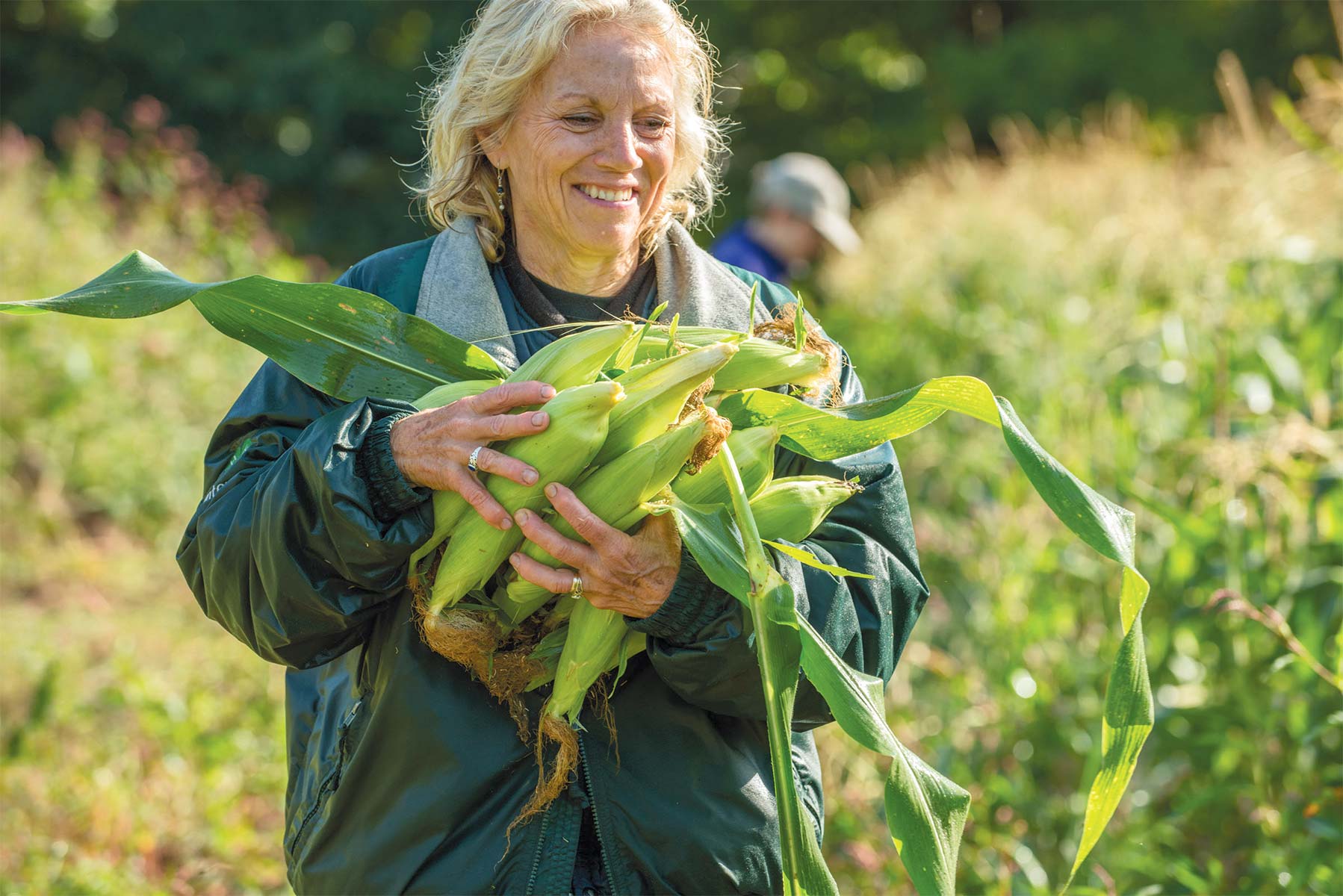
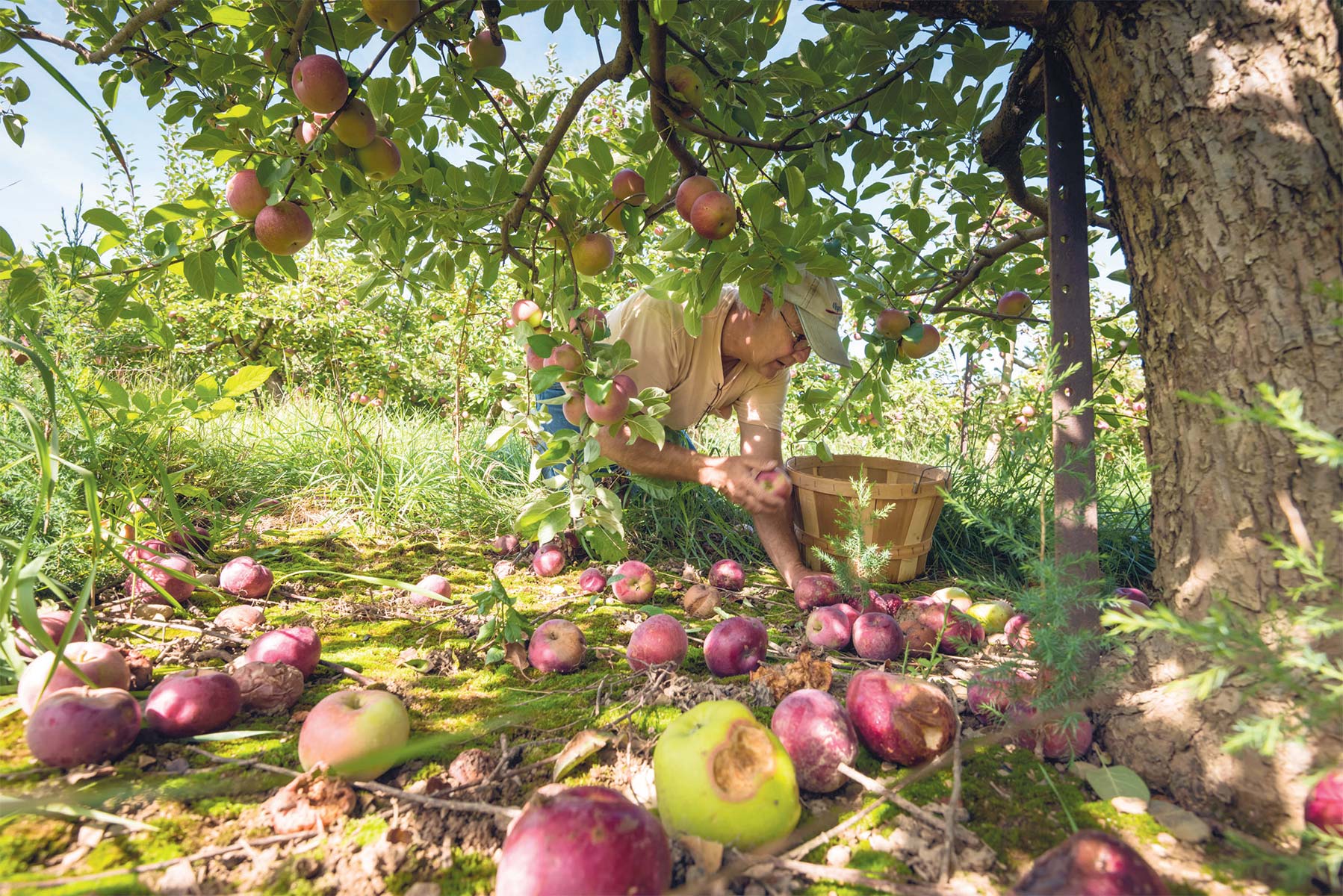
“These are farm-to-table dinners attended by [people from] all walks of life,” Parauda says, adding that local chefs prepare the food at Manna House, a soup kitchen at First Presbyterian Church in Newton.
Education is part of LocalShare’s mission and of the Foodshed Alliance as a whole. The nonprofit Foodshed Alliance was founded in 2000 as a means to strengthen local agriculture, focusing on sustainable farming in North Jersey. On its website, foodshedalliance.org, the mission statement notes that the organization believes “that the future of our health, our land, and our communities depends, to great extent, on the existence of local farms—that farmers are the keystone to our connection with our food, the land and our sense of place. It is this conviction that drives us to work with farmers, consumers and agricultural professionals to foster a self-sustaining ‘foodshed’ that supports farmers, nourishes people, respects the land and strengthens our communities.”
The issues are far-ranging, incorporating food safety, public health, fair wages, the welfare of farm animals, environmental practices and the resilience of the food system to climate change.
“Currently, our biggest issues involve land access for farmers, because farmers are getting older and it’s expensive to live and farm here,” says Kendrya Close, executive director of the Foodshed Alliance. “The issues of food access and food waste kept coming up, which is how the gleaning program began, but we’re also thinking outside the box of CSAs and farmers’ markets. We’re looking at mobile farm markets,” she says. “We want to flip that dynamic to ‘Don’t come to us, we’ll come to you.’”
The work of LocalShare and the Foodshed Alliance has been educational for staff and volunteers as well as for the general public.
“I’ve come to more fully understand the value of the work farmers do, and why local is important,” Parauda says. “And it’s made me think about food policy: Wouldn’t it be wonderful if our farmers’ food could be in our supermarkets and in hospitals?”
And working on food insecurity has taught Close that solving the problem goes beyond simply getting calories into people. “There’s way more that needs to be done.”
These are issues that LocalShare will continue to address by aligning its efforts with the rhythms of the seasons, field by field and row by row. Over the past five years, the group has worked with about 17 farms, including Circle Brook Farm in Andover, Race Farms in Blairstown, Long Meadow Farm in New Hope and Brook Hollow Farm in Columbia. The group would like to expand that roster in the years ahead.
“Sometimes in the spring, we’ll get to harvest some early spinach, or root vegetables,” Smith says. “By mid-summer, it picks up. This was a banner year for peaches, not good for tomatoes.”
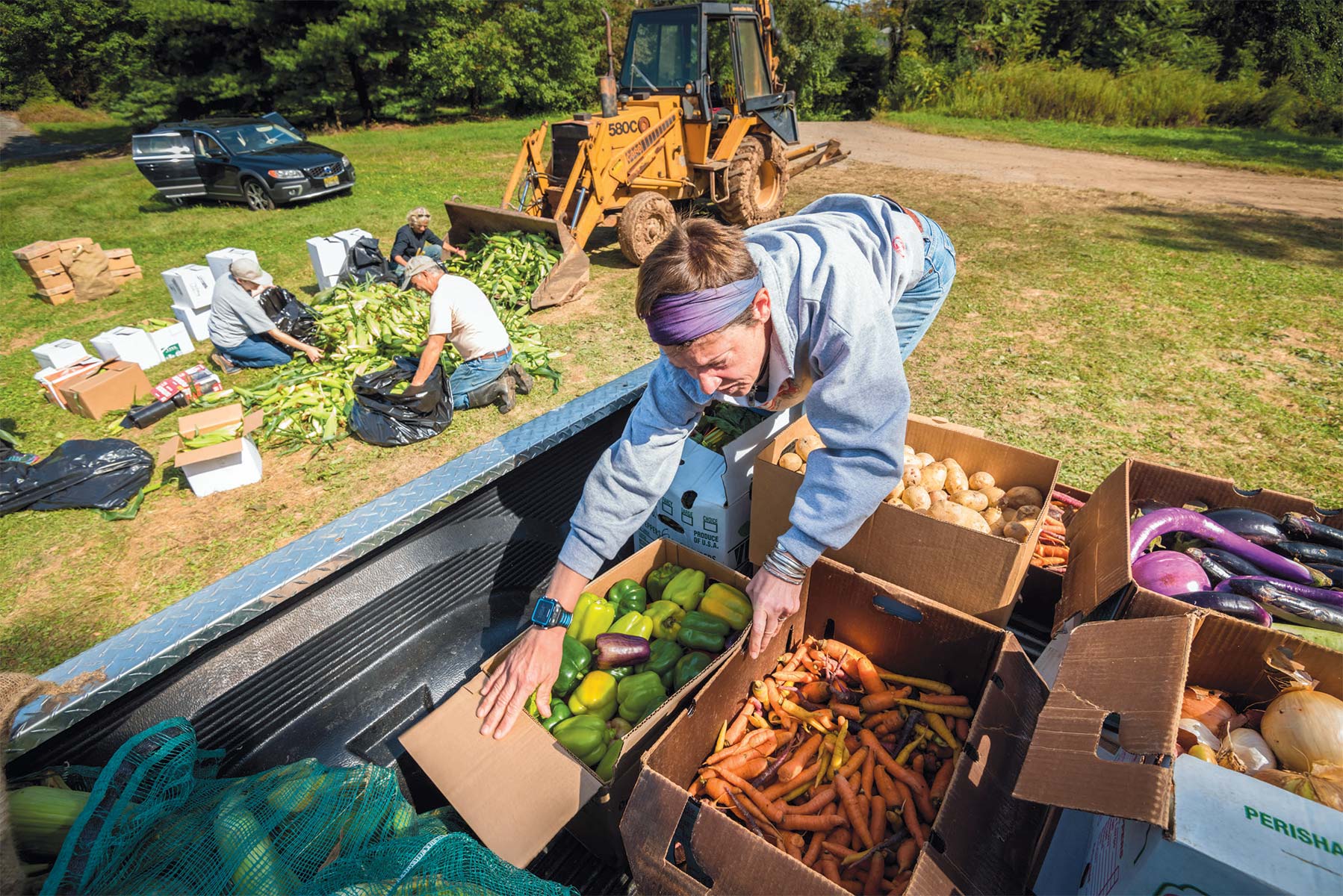
HERE’S HOW YOU CAN HELP
LocalShare welcomes volunteers, all year. In the growing season, from spring through late fall, help is needed gleaning on the farms and delivering the produce to food pantries and soup kitchens. LocalShare’s pay-what-you-want dinners will resume in 2018, and volunteers are needed to prep, cook, set up, serve and clean up after the meals.
Volunteers also are needed to do outreach at community events, spreading the word about LocalShare, and to conduct demonstrations and classes on growing, cooking and preserving local, organic food.
LocalShare recently received a donation of a pick-up truck from John Johnson Auto Group, based in Budd Lake, to help in its deliveries. The organization is currently seeking donations of money or gift cards to use at gas stations to help fuel the truck. Donations can be made online at localsharenj.org. Gift cards can be mailed to P.O. Box 713, Blairstown, NJ 07825.
For more information, go to localsharenj.org


